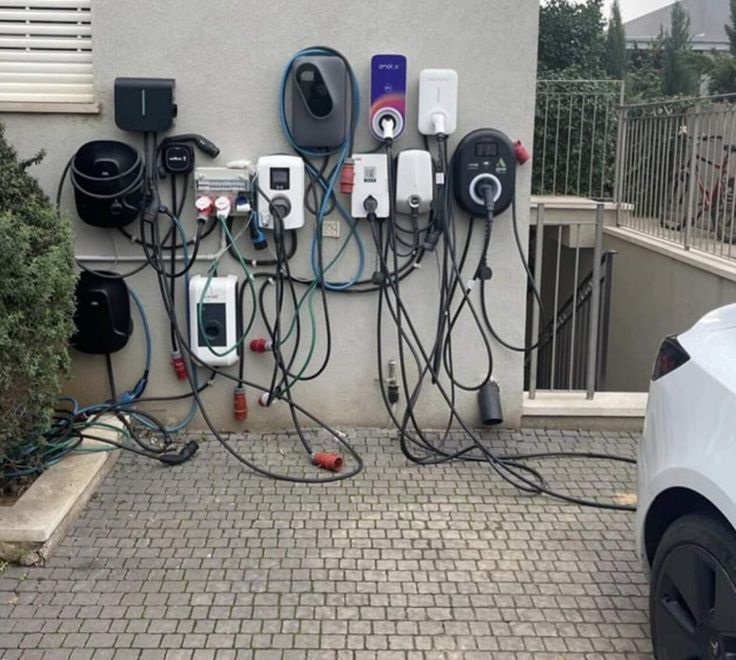The electric vehicle (EV) revolution is no longer a whisper of the future—it’s happening now. With over 18 million EVs already on the road worldwide and projections soaring to nearly 230 million by 2030, the shift away from internal combustion engines is undeniable. But as this transformation picks up speed, where does the EV revolution go next? Let’s explore the trends, breakthroughs, and challenges that will shape the next decade of electric mobility.
Battery Technology: Powering the Next Leap
At the heart of every EV is its battery, and advancements in this technology are accelerating rapidly. The industry is moving beyond traditional lithium-ion batteries toward solid-state batteries, which promise higher energy density, faster charging, and enhanced safety. Companies like Toyota and QuantumScape are investing billions in this frontier, with mass production anticipated by 2028. Simultaneously, recycling initiatives are scaling up to recover valuable materials like lithium, cobalt, and nickel, reducing environmental impact and dependency on mining.
Charging Infrastructure: Bridging the Gaps

One of the biggest hurdles for EV adoption remains charging accessibility. Governments and private companies are racing to build extensive charging networks. In the U.S., the Bipartisan Infrastructure Law has allocated $7.5 billion to create a nationwide charging network, focusing on filling gaps in rural and underserved areas. Europe, meanwhile, is pushing for ultra-fast chargers along its highways, aiming for a seamless long-distance travel experience. Wireless and bidirectional charging—which allows EVs to feed electricity back into the grid—are also on the horizon, further enhancing convenience and sustainability.
Affordability: Driving Mass Adoption
While early EVs catered to a premium market, affordability is now a key focus.

The emergence of budget-friendly models, such as the $25,000 Tesla (expected in 2025) and offerings from companies like BYD and Tata Motors, is democratizing electric mobility. Coupled with falling battery costs and government incentives, these developments make EVs increasingly accessible to middle-class families worldwide.
Autonomy and Connectivity: The Next Frontier
The EV revolution isn’t just about electrification; it’s also intertwined with the rise of autonomous driving and smart connectivity. Self-driving EVs, such as Waymo’s autonomous taxis, are redefining urban transport. Meanwhile, vehicles are becoming smarter, integrating AI to personalize driving experiences, enhance safety, and optimize energy use. Over-the-air updates ensure EVs improve over time, much like smartphones.
Global Impacts: Emerging Markets and Sustainability
While the EV boom started in developed countries, emerging markets are now stepping into the spotlight. China continues to dominate EV production and adoption, while nations like India and Brazil are rapidly expanding their EV ecosystems. This global shift is critical for reducing greenhouse gas emissions, as transportation accounts for nearly 20% of global emissions.
On the sustainability front, the focus is shifting toward a circular economy. Automakers are designing vehicles with end-of-life recycling in mind, while renewable energy integration ensures that EVs truly reduce carbon footprints.
Challenges Ahead
The road to an all-electric future isn’t without its bumps. Supply chain constraints, particularly for critical minerals, remain a pressing concern. Charging deserts—areas with insufficient charging infrastructure—could hinder adoption in certain regions. Additionally, integrating millions of EVs into aging power grids will require significant upgrades and smart grid solutions.
The Road Ahead

The EV revolution is more than a technological shift; it’s a societal transformation. By 2030, the automotive landscape will look drastically different, with EVs becoming the norm rather than the exception. Collaboration among governments, industries, and consumers will be crucial to overcoming challenges and ensuring a smooth transition.
As we stand on the brink of this electrified future, one thing is clear: the EV revolution is unstoppable. It’s not just about cars; it’s about reimagining mobility, reducing emissions, and driving toward a sustainable tomorrow.



